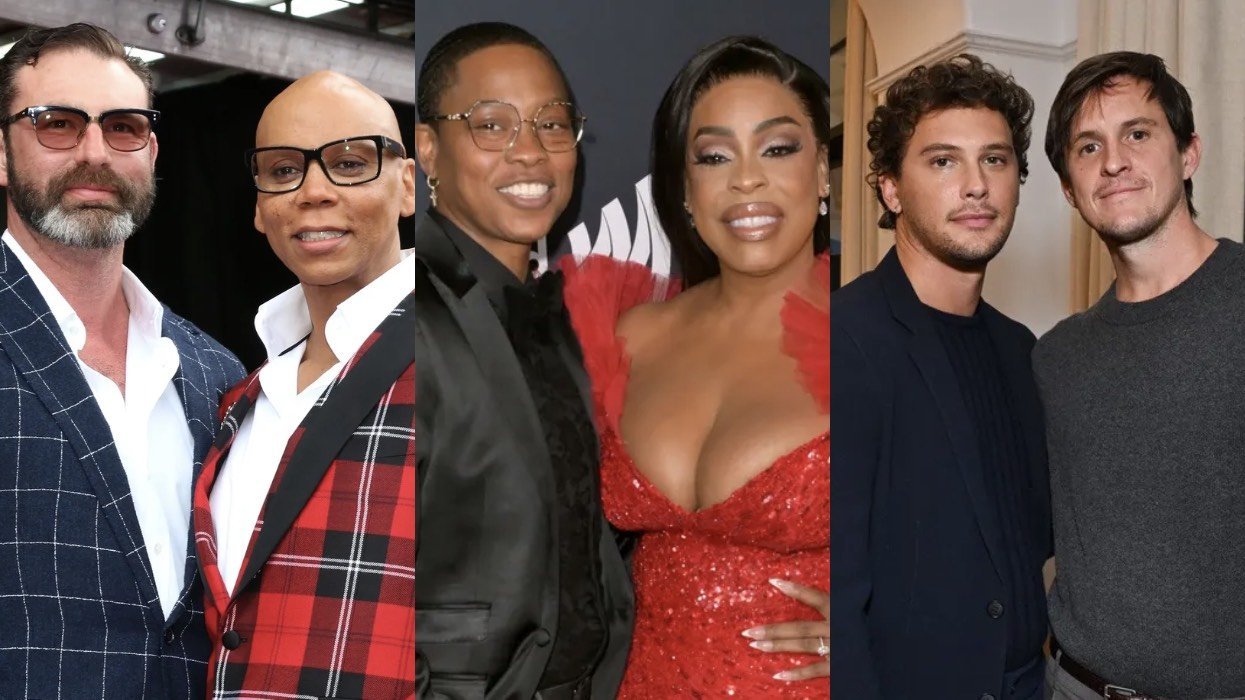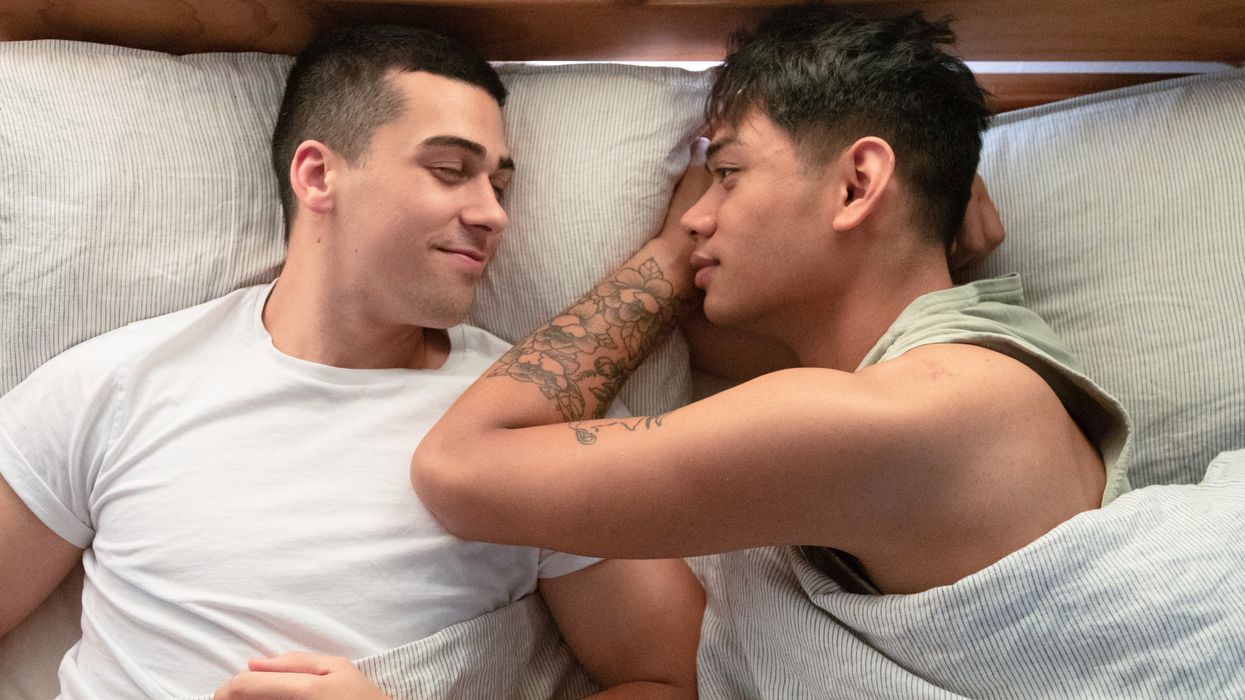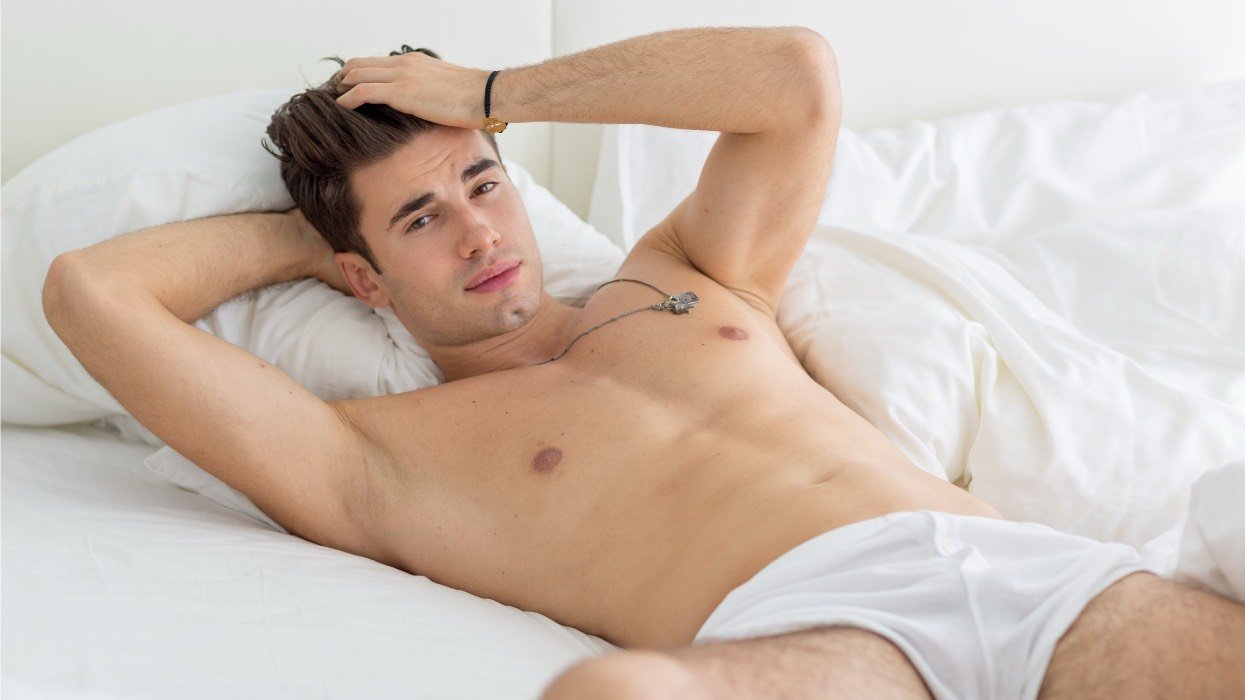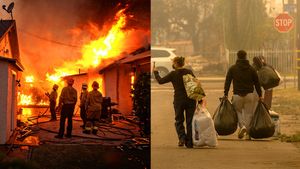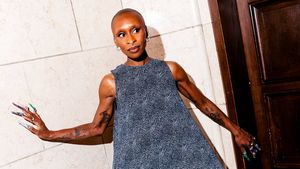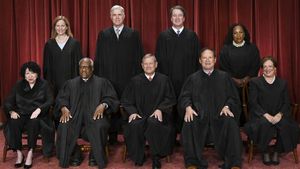Straight people, there are places where you do not belong. The backroom of a seedy gay bar is one of them. When you walk through the curtain, the room is completely dark. It takes a minute for your eyes to adjust. All you can hear are shuffling feet, the throbbing bass from the dance floor, and the wet, padded slap of someone getting fucked.
This was my go-to gay bar’s backroom until two months ago, when a straight woman wandered back there, got touched, and threatened to call the cops. Here’s a lesson: When you walk into a backroom, you waive a degree of consent. Gay men go back there to get groped. If someone starts feeling you and you’re not interested, gently push his hand away. If you feel the need to do this a lot, you shouldn’t be back there. Guys who don’t like anonymous sex stay on the dance floor or by the bar. No judgment, no shame.
The hallmarks of our culture don’t seem to matter when you, heteros, feel threatened by them — you who can go anywhere and find bars, films, restaurants, billboards, and a million stupid Top 40 hits catering exclusively to your relationships, not ours. Fearing a police raid (something we gay men are rather familiar with), the owners of my home base recently installed painfully bright lights, took down the curtains, and turned our backroom into a well-lit smoking lounge.
Straight people, haven't you ruined enough of our stuff? Haven't you taken enough of our culture and called it yours? You use our cultural terms and watch our TV and degrade us every day and still want red carpet invites to our parties. If we seem defensive of our spaces and threatened by your bachelorette parties, it’s because our spaces are aggressively outnumbered by yours. Our bars are disappearing, yet your shitty hetero-centric gastropubs stay open. Yes, changing social mores, gentrification, and hookup apps are partially responsible for the death of the gay bar, but frankly, gay men don’t want the spaces where we feel most at home flooded with straight people there to gawk at us. We see your relationships every day on TV. We see your sex scenes in every romantic comedy. How often are you forced to see ours?
You didn’t fight for these spaces — we did. You didn’t find refuge in drag shows during the height of the AIDS epidemic — we did. You don’t escape to the nearest gay bar after years living in the closet so that you may experience community, belonging, and sex for the first time — we do.
The unfortunately titled commentary “Dear Gay Men, Stop Telling Women They Can’t Be in Gay Bars” last month was inflammatory because it suggests that straight people — particularly straight, cisgender women — don’t need permission from gay men to be in gay bars, or permission from queer people to be in queer bars, or presumably permission from trans folk of color to be in venues that cater to trans and genderqueer folks of color.
This is like saying a white person doesn’t need permission to be in a Latin bar — or, for that matter, doesn’t need to respect the fact that they are in Spanish-speaking environment and cannot expect to be served in English.
The article suggests that the sole reason women might not be welcome in some venues is because of misogyny — excluding their behavior and hetero privilege from the problem. It’s no secret that misogyny is a big problem in the gay male community, but if we’re going to look at large problems, let’s look at straight male violence against women — an issue that isn’t fixed by encroaching on the territory of space belonging to someone else.
The fact is, everyone needs permission to be in bars that don’t cater to them. You are a guest. There are cultural zones for certain demographics that are intentionally exclusionary — not out of hate, fear, or prejudice, but because everyone deserves space, and you must respect it. Straight women: If you don’t like this, go literally anywhere else in the world. Wherever you go, you can be assured that there will be straight people there.
Gay men don’t know what that’s like. Queer people don’t know what that’s like. We are strangers in the world. Walk through a shopping mall and find one storefront that assumes we’re buying, not you. That’s why we create gay bars and gayborhoods and gay hotspots. It’s the only time in life we feel like we’re not some threatened, invisible minority.
The author makes a vital point that queer and trans women deserve space just as much as gay men. Let us speak the truth: They deserve it more than gay men do, because we’re in an epidemic of transphobic violence, particularly against trans women of color. So here’s another lesson: There are different kinds of “gay bar.” Being welcome at one doesn’t mean you’re welcome at them all.
There are so-called gay bars that cater primarily to trans and genderqueer folks. There are “everyone” queer bars where you can find drag shows, people of every every gender (or no gender), club kid couture, and Donna Summer playing on the TV. These are the golden “all are welcome” spaces where straight, cisgender women can feel safe, as long as they don’t treat the queer people there like sideshow attractions. Don’t go there to get your picture taken with “the gays.”
There are daddy smoking lounges where gay men of a certain age smoke cigars and drink Manhattans. There are glittery stand-and-pose bars with guys dancing on boxes in fluorescent thongs. So long as you tip dancers for good work, bachelorettes, welcome!
There are community leather bars that aren’t explicitly gay or queer but have a mostly gay and queer clientele. These are where kinksters, folks of every gender and fetish, gather on a porch drinking beer while someone on a St. Andrew’s cross gets flogged. If you don’t know what a St. Andrew’s cross is or what red hankies mean, do some research before coming.
There’s the occasional lesbian bar — a space I would probably not venture to on a Saturday night, not because I don’t like gay women, but because it’s a safe assumption that patrons of a lesbian bar don’t go there to see me, and I respect that (See, folks? It’s really that simple).
Last but not least, there are low-light, implicitly male-only, throbbingly loud cruise bars where men go to fuck or get fucked up. Bachelorettes: go somewhere else. This isn’t because misogyny is not a huge problem in the gay community — it is. But these spaces might truly not be safe for anyone of any gender who doesn’t want to be groped. When the music is deafening, when all you can see are faint outlines under the strobe light, and when everyone’s drug hits and the activities of the backroom start spilling into the main dance floor, men and women look very similar. A space where groping gets a free pass can cause problems for people seeking a space where they won’t get touched.
I’ve been poked, prodded, grabbed, and fucked on dance floors across the country by men I cannot see — including trans men, who are always welcome at male-catered venues as long as they’re getting my patronage. This is why I go to these places. If you’re not a man seeking sex with men, these bars might not be for you. If you don’t like this, there are many other bars to go to — including other gay bars. And if the only so-called gay bar nearby is a sleazy MSM cruising zone, queer and trans women have more right to these spaces than you and your six best (straight, cis) girlfriends, Meghan.
There’s been a lot of talk lately about the presence of women — primarily straight, cisgender women — in gay bars. Everyone is allowed to seek safe space, and should. But you’re not allowed to seek it disrespectfully or threaten parts of other’s spaces you don’t like. Our first rallies and marches were organized on bar stools — not the clean ones where go-go boys carefully step over your drinks. Our history started in backrooms. Before backrooms, we had shipping containers by the docks. Before shipping containers, we had closets.
Stop ruining what isn’t yours. Check your privilege at the door.
ALEXANDER CHEVES is an Atlanta-based writer. Follow him on Twitter @BadAlexCheves.














































